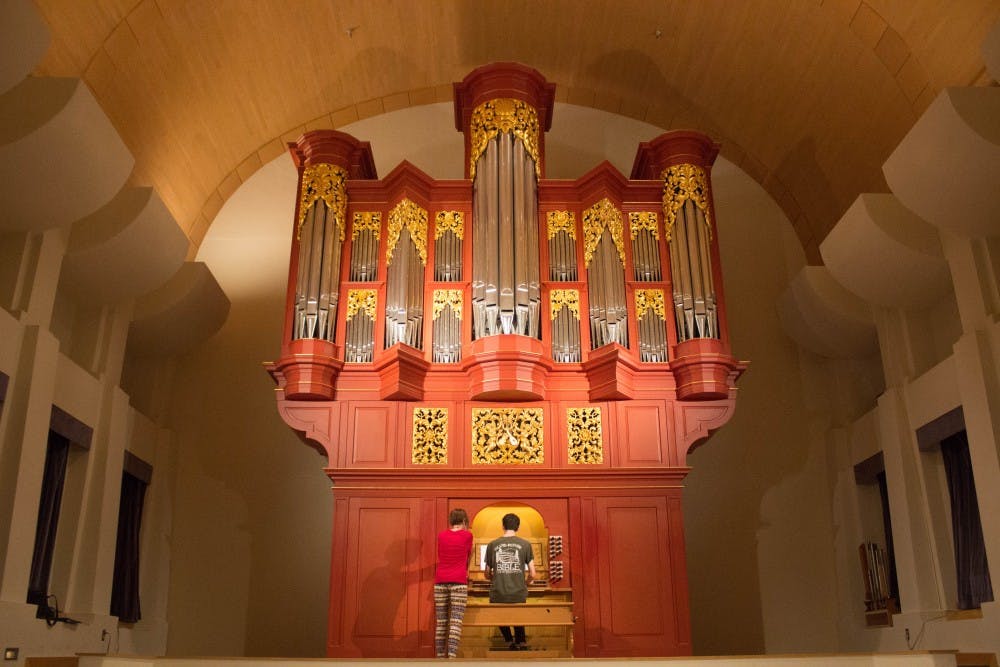Standing at the front of Organ Hall inside ASU’s Music Building, the Paul Fritts & Co. Organ is just one fragment of the legacy left behind by late organ Professor Robert "Bob" Clark.
Clark began playing piano at 4-years-old and took a job playing organ in a church at the age of 14. He went on to attend Central Methodist University and finished his graduate studies at Union Theological Seminary's School of Sacred Music.
Clark passed away on Aug. 23, 2017 at the age of 85. As a part of the Organ Series at ASU, a group of Clarks former students will be participating in an event to honor the organist.
Following a 14-year career at University of Michigan, Clark joined the School of Music faculty at ASU where he played a pivotal role in the development of the organ department and its facilities.
Kimberly Marshall, current professor of organ and Clark's successor, said Clark's impact on the organ program has attracted many organists to the university, including herself.
Prior to the development of the Organ Hall, Marshall said organ students would have to use an instrument outside of the music building such as the one at ASU Gammage or Mesa's Victory Luther Church.
While both venues were accommodating, Marshall said Clark knew the importance of having a widely accessible organ in the music building.
“For organ programs you really need a very fine instrument,” Marshall said. “Robert Clark understood that we needed an instrument built in historical style in order for students to have the best possible opportunity to learn that early repertoire and compliment the other organs in the Phoenix metropolitan area.”
In 1992, Clark’s efforts to further the organ department manifested in the addition of the Organ Hall and the Fritts & Co. Organ to the Music Building.
With attention to acoustical properties and understanding of the relationship between an organ and its environment, the Organ Hall was specifically constructed to house ASU's specially designed Fritts & Co. Organ.
Marshall said the inauguration of an instrument crafted to reflect historical instruments and the chamber that houses that instrument have increased the ASU organ program's visibility in the local organ community.
Along with the legacy he left on campus, Clark impacted the lives of students he mentored during his 17 years at ASU.
Michael Mazzatenta graduated from ASU in 1991 and said he remained in contact with Clark long after his participation in ASU's organ program.
Mazzatenta met his wife, who was also Clark's student, in the organ program. Clark later attended the couple's wedding which Mazzatenta said is a testimonial to Clark's strong relationships with his students.
“He was very natural and personable with the students. He had a gentle approach but still very knowledgeable and expert,” Mazzatenta said.
The performers will be playing pieces inspired by Clark on the Fritts & Co. Organ in the Music Building, according to Clark's former student Curt Sather, who graduated in 1988.
“We’re all playing pieces that were favorites of his, things that he played really well or things that he taught us– making important connections to him,” Sather said.
"A Celebration of Robert Clark's Legacy" will take place on Sunday, Oct. 21. The event is open to the public and tickets can be found here.
Reach the reporter at dfbrewst@asu.edu or follow @destinyyyfaye on Twitter.
Like The State Press on Facebook and follow @statepress on Twitter.




